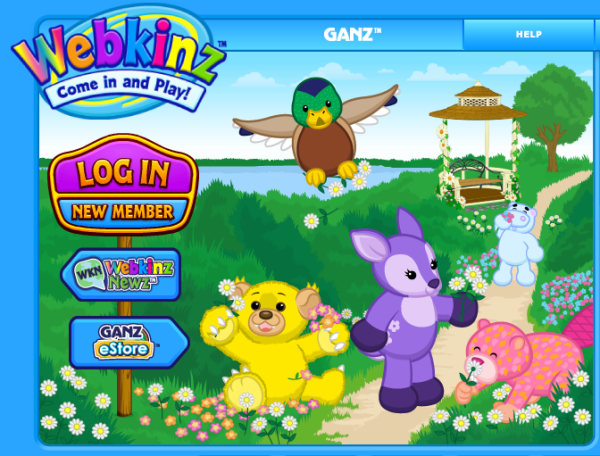 Photo sharing websites like Flickr, PhotoBucket, and Shutterfly are becoming extremely popular. Signing up for a free account only takes a few minutes, and then you can upload all your family pictures, add captions, and share them with friends and relatives. Photo sharing sites are a great way to stay in touch with out-of-state relatives or catch up with friends you don’t see very often. And let’s face it – pictures of your own kid are too cute not to showcase. But many parents are using photo sharing sites much too freely, and it may be compromising the safety of their kids.
Photo sharing websites like Flickr, PhotoBucket, and Shutterfly are becoming extremely popular. Signing up for a free account only takes a few minutes, and then you can upload all your family pictures, add captions, and share them with friends and relatives. Photo sharing sites are a great way to stay in touch with out-of-state relatives or catch up with friends you don’t see very often. And let’s face it – pictures of your own kid are too cute not to showcase. But many parents are using photo sharing sites much too freely, and it may be compromising the safety of their kids.
Xbox 101: What Every Parent Needs to Know

Xbox. Xbox 360. Xbox LIVE. What’s the difference between these systems and what do we need to know as parents. Let’s start with the basics.
When I was a kid “social gaming” meant sitting around with your friends on beanbag chairs, waiting for your turn at Pac-Man with the one joy stick we had. The definition of “social gaming” for our children’s generation is very different.
Today, our children can pick up their controller and play a game of Halo with someone 1,000 miles away by connecting online. They can check to see if their friends are “online” and join them in “multi-player mode”, all while sitting on beanbag chairs in different houses. The world of gaming is changing rapidly and as parents we need to change the image we have of how kids play video games.
Microsoft’s Xbox is just one example of “social gaming”. These systems allow the user to connect online through your homes internet connection to download new games, chat or play with others users, download and watch movies, or even share photos.
The Cyberbullying Conversation Every Parent Needs to Initiate
 The cyberbullying-induced suicide of Massachusetts teen Phoebe Prince in March put cyberbullying back in the spotlight. Parents need to talk to their kids, not only about what to do if they are cyberbullied themselves but also how to stop it from happening to their peers and how to avoid becoming cyberbullies themselves.
The cyberbullying-induced suicide of Massachusetts teen Phoebe Prince in March put cyberbullying back in the spotlight. Parents need to talk to their kids, not only about what to do if they are cyberbullied themselves but also how to stop it from happening to their peers and how to avoid becoming cyberbullies themselves.
Cyberbullying is any form of harassment, humiliation, or abuse that takes place using technology and Internet connectivity. It can, and often does, start with seemingly innocuous things like fowarding an embarrassing picture of a classmate or leaving an off-the-cuff mean comment on someone’s Facebook Wall. It can escalate to more serious offenses like impersonating someone else on the Internet or setting up a website designed to make fun of them.
Facebook as a Photo Sharing Site
 Facebook isn’t strictly a photo sharing site, but it’s increasingly being used as one – especially by teens.
Facebook isn’t strictly a photo sharing site, but it’s increasingly being used as one – especially by teens.
In almost any group of tweens or teens, someone is likely to have a camera phone. They can quickly snap a picture, upload it directly to Facebook from their phone, and it is instantly disseminated through their entire network of friends. This can be a convenient way to relay messages, but it can also be dangerous if your child isn’t aware of who can see their pictures (and the captions they tack on them.)
The four Privacy Settings for photos on Facebook are:
-
Everyone
Internet & Mobile Safety Pledge
 You can help your child safely enjoy technology and steer clear of digital dangers such as predators, sexting and cyberbullying by getting involved with their digital life.
You can help your child safely enjoy technology and steer clear of digital dangers such as predators, sexting and cyberbullying by getting involved with their digital life.
One way to ensure that your child knows what is expected of them is for you and your child to review, sign and post a Safety Pledge on the refrigerator.
-
I will talk with my parent(s) so that we can establish rules for using the Internet and my mobile phone. We will decide the time of day that these can be used, the length of time that I can use them, the appropriate online areas for me to visit, and the appropriate uses of my mobile phone.
Kids Safety Question: Could Your Kids Be Building An Army of Webkinz?
Being online doesn't just refer to the computer located in your kitchen. Kids access the Internet from laptops, mobile phones, gaming consoles and handheld devices. Are your kids building an army of Webkinz? Are you worried your teen will have arthritic thumbs from texting too so much? If this sounds familiar, let's talk.
Obviously technology has a ton of benefits to our children but you may be concerned about what they're doing in the world of bits and bytes and what decisions they're making. If you're not concerned, you are probably at least at least curious. Most of us don't fully understand some aspects of the technology that our kids are using. The good news is that you can become more familiar with technology and you can learn about the issues that affect your kids online. These issues include cyberbullying, revealing too much and predators.


